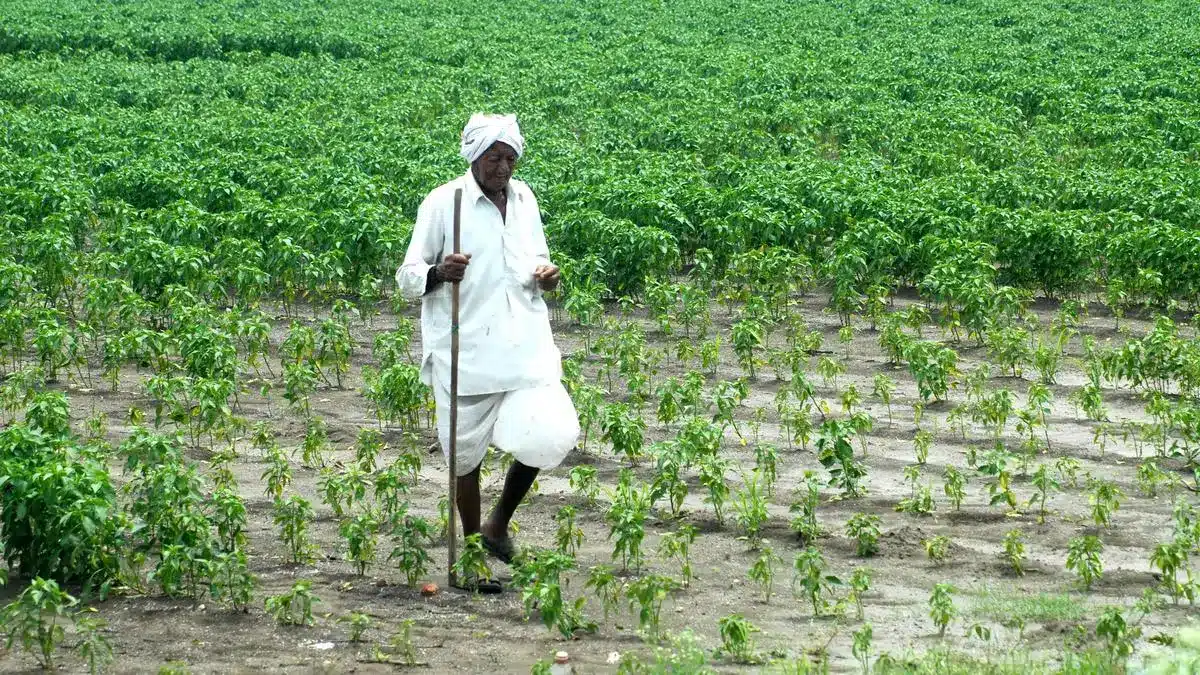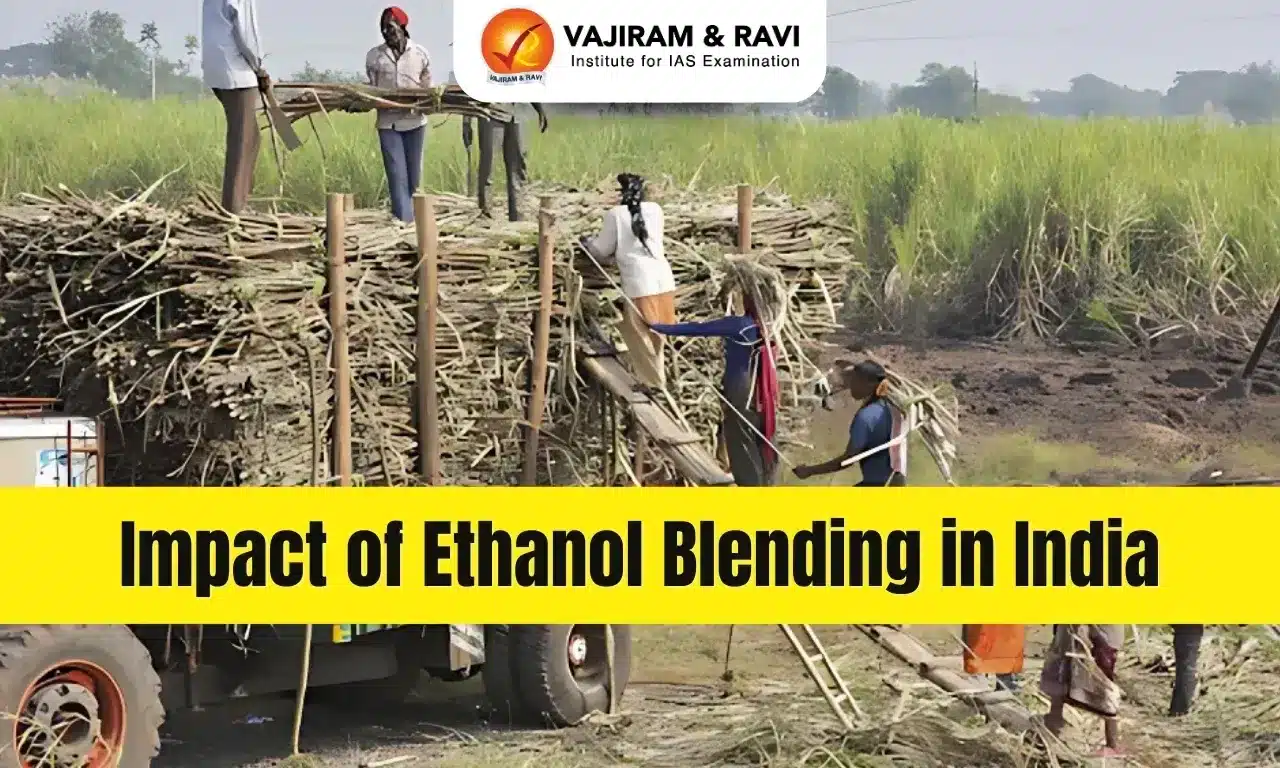What’s in today’s article?
- Why in the News?
- What is a Primary Agricultural Credit Society (PACS)?
- Number of PACS in India
- Significance of PACS
- Challenges Faced by PACS
- News Summary
Why in the News?
- Union Minister of Home Affairs and Cooperation Amit Shah urged stakeholders in cooperative societies to support the establishment of primary agricultural credit societies (PACS) in all villages and blocks of the country.
What is a Primary Agricultural Credit Society (PACS)?
- PACS are village level cooperative credit societies that serve as the last link in a three-tier cooperative credit structure headed by the State Cooperative Banks (SCB) at the state level.
- Credit from the SCBs is transferred to the District Central Cooperative Banks (DCCBs), that operate at the district level.
- The DCCBs work with PACS, which deal directly with farmers.
- Since these are cooperative bodies, individual farmers are members of the PACS, and office-bearers are elected from within them. A village can have multiple PACS.
- PACSs provide short-term, and medium-term agricultural loans to the farmers for the various agricultural and farming activities.
Number of PACS in India
- The first PACS was formed in 1904.
- Currently, there are more than 1,00,000 PACS in the country with a huge member base of more than 13 crore farmers.
- However, only 65,000 of them are functional.
Significance of PACS
- The attraction of the PACS lies in the last mile connectivity they offer.
- For farmers, timely access to capital is necessary at the start of their agricultural activities.
- PACS have the capacity to extend credit with minimal paperwork within a short time.
- With other scheduled commercial banks, farmers have often complained of tedious paperwork and red tape.
- For farmers, PACS provide strength in numbers, as most of the paperwork is taken care of by the office-bearer of the PACS.
- In the case of scheduled commercial banks, farmers have to individually meet the requirement and often have to take the help of agents to get their loans sanctioned.
Challenges Faced by PACS
- Since PACS are cooperative bodies, political compulsions often trump financial discipline, and the recovery of loans is hit.
- Many committees have pointed out various issues plaguing the cooperative system such as;
- Lack of active participation by the members,
- Lack of professionalism,
- Absence of corporate governance,
- Bureaucratisation,
- Ageing and unenthusiastic employees.
News Summary
- Addressing a programme at Gandhinagar marking the 102nd International Day of Cooperatives in Gandhinagar, Union Minister Amit Shah said that the Government will set up primary agricultural credit societies (PACS) in all villages and blocks of the country.
- Currently, there are 2 lakh such gram panchayats which lack PACS.
- He further appealed to all cooperative societies to open bank accounts with local district and state cooperative banks, as well as buy from local dairies, to strengthen the cooperative sector.
- He said that the cooperation ministry has undertaken a drive to “establish 2 lakh dairies and PACS” for the 2 lakh gram panchayats which he says lack such facilities.
- He added that this move is in addition to an established database which identifies cooperative societies across the country.
- In March 2024, the Government had launched the National Cooperative Database and released the ‘National Cooperative Database 2023: A Report’.
- The database aims to identify and address the gaps through a comprehensive analysis.
- He said that the Centre has decided to ensure formation of Primary Agricultural Credit Societies in every village by 2029.
- He said that the Government will come out with a new national cooperative policy within a month.
- The new policy, replacing the existing one formulated in 2002, will seek to further strengthen cooperative movement in the country.
Q1. What do you mean by Soft Loan?
A soft loan is a loan with no interest or a below-market rate of interest. Also known as “soft financing” or “concessional funding,” soft loans have lenient terms, such as extended grace periods in which only interest or service charges are due, and interest holidays.
Q2. What is the role of Regional Rural Banks?
Regional Rural Banks help the overall development of rural areas in the country. They generate employment opportunities in such areas. They uplift the economy of rural areas by providing them with credit facilities that people can utilize for running their trade and business.
Source: Not one village should lack’ primary agricultural credit societies: Amit Shah
Last updated on August, 2025
→ UPSC Mains Admit Card 2025 has been released on 14th August at www.upsc.gov.in.
→ UPSC Mains 2025 will be conducted on 22nd August 2025.
→ UPSC Notification 2025 was released on 22nd January 2025.
→ UPSC Calendar 2026 is released on 15th May, 2025.
→ UPSC Prelims Question Paper 2025 and Unofficial Prelims Answer Key 2025 are available now.
→ UPSC Prelims Result 2025 is out now for the CSE held on 25 May 2025.
→ The UPSC Vacancy 2025 were released 1129, out of which 979 were for UPSC CSE and remaining 150 are for UPSC IFoS.
→ UPSC Prelims 2026 will be conducted on 24th May, 2026 & UPSC Mains 2026 will be conducted on 21st August 2026.
→ The UPSC Selection Process is of 3 stages-Prelims, Mains and Interview.
→ UPSC Result 2024 is released with latest UPSC Marksheet 2024. Check Now!
→ UPSC Toppers List 2024 is released now. Shakti Dubey is UPSC AIR 1 2024 Topper.
→ Also check Best IAS Coaching in Delhi















